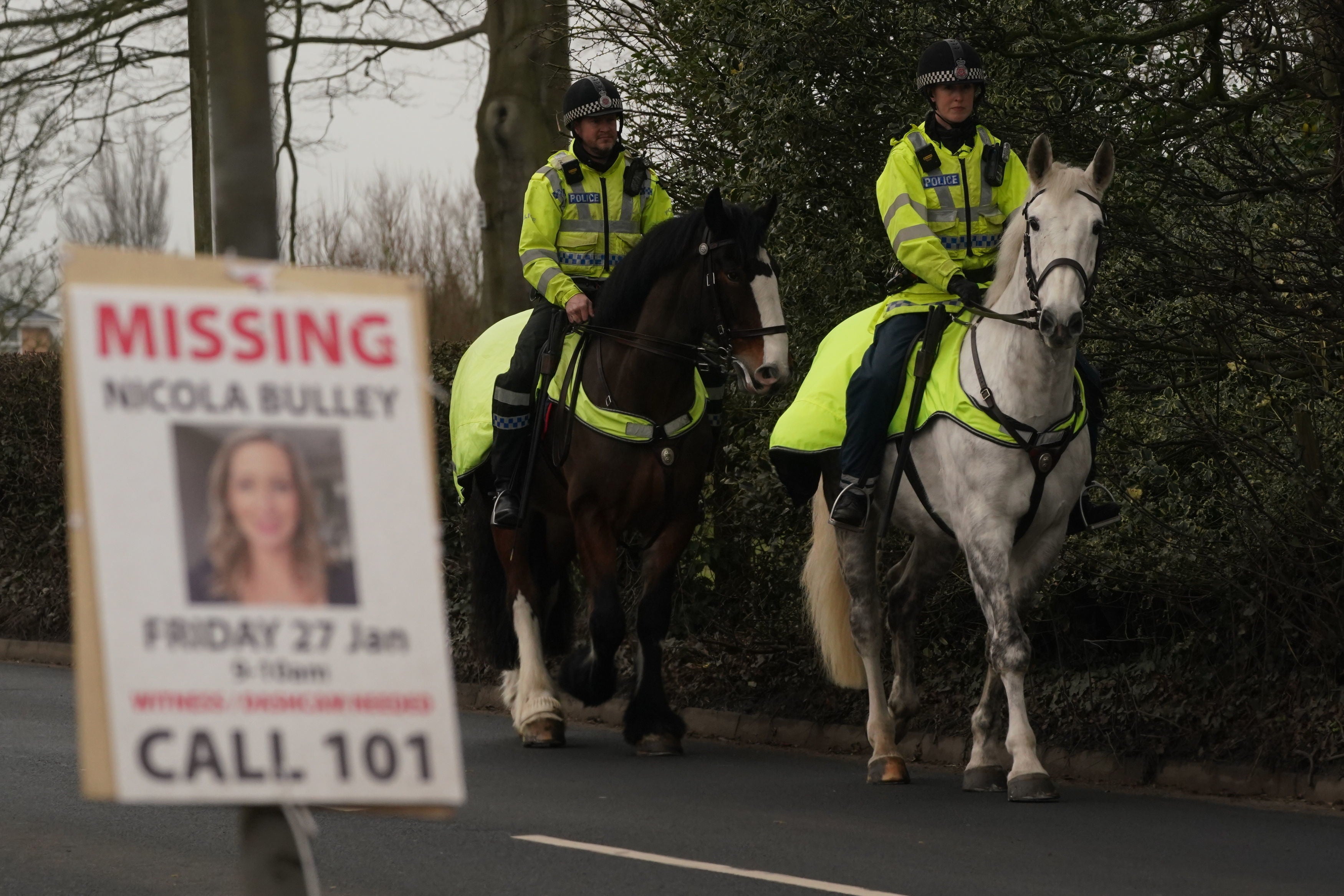Nicola Bulley’s body has tragically now been found – will it bring closure?
When a loved one goes missing, there are hundreds of questions left waiting to be answered, writes psychologist Dr Jessica Taylor


Nicola Bulley’s body has been found in the River Wyre, after weeks of agonising searches.
The latest unwelcome news comes against a backdrop of intense speculation on social media and appeals for information, while a family attempted to put one foot in front of the other, terrified of what comes next.
The public relate to it. They have connected with this traumatic event, and have become desperate for resolution.
When a loved one goes missing, there are hundreds of questions left waiting to be answered. How could this happen? Where are they? Will they ever be found? Did they run away? Were they attacked? Is this a tragic accident? Did someone harm them? Are they suffering? Are they safe?
Families, partners, and friends enter a dizzying situation that they have only ever seen on TV. One day they were going about their daily lives, and the next, they are standing in front of a camera crew for national news outlets, appealing to their loved one to come home safely, or asking anyone else if they saw anything or know anything that could help trace the person.
Police are in constant contact, social media is ablaze, rumours begin to circulate, no one is sleeping or eating properly, children are desperately being protected from the magnitude of the situation, work stops, life stops – and every moment that passes without evidence, clues, or leads, becomes heavier and heavier.
Every day, those traumatised, shocked, and confused families wait for the phone call that will either tell them that their loved one has been found safe and well, or that a body of a person has been found.
Sometimes though, those phone calls are updates describing very little progress, or explaining difficulties or barriers. The shock can remain for weeks or months. People can go into “auto-pilot” and stop processing the enormity of the situation, focusing more on the practical day-to-day steps to stay alive. Or, they totally shut down, unable to look after themselves, or even get out of bed. They can feel frozen in time. The uncertainty is consuming. Often, people say it is the “not knowing” that harms them the most.
It would make sense for people in these situations to yearn for some form of closure, in whatever form that may come. Everyone is unique, especially in trauma.
Where one person may have given up hope of their loved on being found alive, another may only be motivated by that very same hope. For some, their lives have become a waking nightmare and they are ready for it to end, regardless of whether their loved one will be found alive or not.
For others, facing the reality that their loved one may never be coming home is far too much to bear, and they may lean on natural coping mechanisms such as denial, withdrawal, praying, bargaining, begging and deliberate optimism.
It is important to discuss this complex form of trauma. Some people might think that finding a body after weeks of empty searches is enough to begin the process of closure. However, for many people, finding a body of a loved one only causes more chaos and raises more questions. For some, of course, the finding of a body extinguishes whatever hope or strength they had left.
Losing someone we care about is always going to be one of the biggest difficulties we will face in life. For many of us, this will happen over and over again. Grief and loss are tied to huge fears, emotions and psychological connections to our natural and normal fear of death, dying, loss and uncertainty.
However, when we lose someone in unexpected, confusing, traumatic, or tragic circumstances – there are added layers of trauma to experience, live with, and process. And trauma processing is a lifelong journey.
Is closure even possible in some cases? The frank answer, is no. Many people carry loss and grief with them for the rest of their lives, knowing they will never really find the answers to what happened.
Arguably, for those people, it is one of the hardest parts to process and move on from, and many people feel they can never truly move on. Everyone is unique in their trauma responses. While this devastating development might bring closure to some, we must acknowledge that for others, it will only raise further and more complicated questions.
Dr Jessica Taylor is a chartered psychologist, Sunday Times bestselling author and CEO of VictimFocus
Join our commenting forum
Join thought-provoking conversations, follow other Independent readers and see their replies
Comments


Bookmark popover
Removed from bookmarks